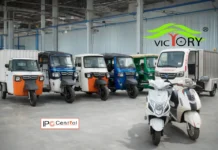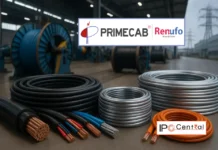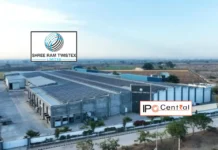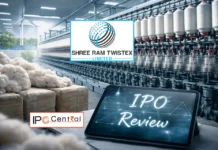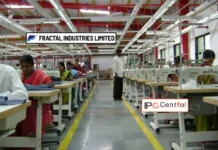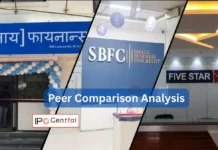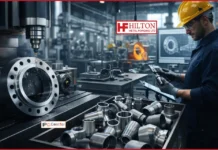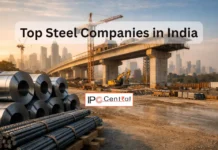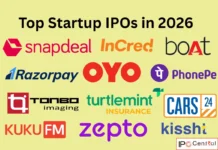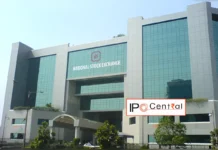
Kolkata-based MSTC – a Mini Ratna under the Ministry of Steel – is planning to launch its IPO on 13 March, according to the red herring prospectus. The company is yet to announce the pricing of the upcoming IPO but has disclosed pretty much everything about its operations in the prospectus.
Here are few points you need to know before investing in MSTC IPO:
MSTC’s business operations
MSTC (originally called Metal Scrap Trade Corporation) started as a trading company, specializing in the export of metal scrap. Gradually, the company expanded into other business lines and has now transformed into a diversified, multi-product, services and trading company. Lately, the company has further diversified in recycling business through an equal stake joint venture (JV) with Mahindra Intertrade.
As of now, MSTC’s business operations can be divided in the following three major business verticals:
E-commerce – Within E-commerce, MSTC offers services related to e-auction, e-procurement and development of customized software and solutions. The segment contributed 7.01% to MSTC’s total revenue for the six months ended 30 September 2018.
Trading – This constitutes the maximum to the company’s top line and the contribution stood at 80.96% during the first half of FY2019. MSTC primarily trades in industrial products and commodities such as Iron bearing materials like scrap, DR pellets, DRI, calibrated lump ore, HBI, etc; Coking Coal & Coke; Finished and semi-finished steel items like HR coil, CR coil, wire rods, billets, etc; Petroleum & petrochemical products; Industrial raw material, preferably bulk in nature or high values; and Imported thermal coal.
Read Also: MSTC IPO Review: Rags (scrap) to riches?
Recycling – Recycling is the latest addition to MSTC’s operations and is carried out through a JV with the Mahindra Group. The JV – named Mahindra MSTC Recycling Private Limited (MMRPL) – is one of the organized automotive shredding plant in India for recycling End of Life Vehicles (ELVs) and other white goods by converting them into shredded scrap. The JV has established a collection and dismantling centre in Greater Noida, Uttar Pradesh and is in the process of setting up the shredding plant for shredding ELVs and white goods.
Read Also: UPI payment for IPO investors – Here is what to know
Does not own any warehouse
Despite trading materials worth INR4,270.4 crore in the latest six months, the company does not own any warehouse of its own. This might be counter intuitive but results in substantial savings on warehousing and custodial expenses.
How it works is that materials procured and sold to customers are pledged back to MSTC as security towards payment and are released on payment. For keeping the pledged material procured on behalf of customers, an area inside the plant of customer is designated as MSTC stockyard and the material is kept in that stockyard under the supervision of a custodian. The operational modalities of the stockyard are governed by tripartite agreement signed between MSTC, the customer and the custodian. MSTC pays a token fee to the customer for the use of stockyard. MSTC pays the custodian charges but subsequently recovers from the customer.
Heavy dependence on government for business
MSTC is a PSU and primarily gets business from other PSUs and associated entities. This group of the government and government-controlled entities accounted for 90.58% of MSTC’s e-commerce revenue in the latest six months.
Similarly, the trading business – biggest of the three verticals – is characterized by the presence of big clients. Its top three customers in the trading line of business contributed 93.38% of total trading revenue in the half year ended on 30 September 2018. The company has not identified if these are all government entities but it is reasonable to assume so.
Read Also: Upcoming IPOs in 2019 – Forthcoming IPO Calendar in 2019
Freehold buildings under dispute
The company is currently facing a dispute with Standard Chartered Bank and all of its freehold buildings are under attachment following the order of Debt Recovery Tribunal (DRT), Mumbai.
The matter stems from a receivable purchase agreement dated 29 August 2008 entered into by MSTC with Standard Chartered Bank (SCB), under which the bank agreed to purchase certain receivables from MSTC and insured the transaction with ICICI Lombard General Insurance Company. After the debtors failed to repay the outstanding amount, SCB claimed the amount from ICICI Lombard who then repudiated the claim. SCB then converted the trade receivables into debt and filed a case against MSTC in DRT, Mumbai for recovery of INR191.03 crore, alleging default in payments to be made by MSTC. The DRT ordered attachment of all of MSTC’s freehold buildings. Subsequently, MSTC filed a title suit against SCB and ICICI Lombard, challenging the bank’s claim. The matter is currently pending.
Trade volume fluctuations and financials
MSTC’s trade volume has fluctuated substantially in the recent years as a result of slump in the steel sector and decrease in sale of thermal coal to power plants. Naturally, this had a detrimental impact on the company’s financial performance. MSTC managed to post net profit only once in the last three years, ironically in the year with lowest revenues.
MSTC’s financial performance (in INR crore) | ||||||
| FY2016 | FY2017 | FY2018 | H1 FY2019 | |||
| Total revenues | 3,307.8 | 1,876.2 | 2,793.2 | 1,491.6 | ||
| Total expenses | 3,501.7 | 1,692.9 | 2,758.4 | 1,450.1 | ||
| Profit after tax | (265.8) | 133.4 | (9.8) | (12.2) | ||
| Net margin (%) | (8.0) | 7.1 | (0.4) | (0.8) | ||
India’s IPO market is currently in a somber mood and the IPOs of Chalet Hotels and Xelpmoc Design and Tech couldn’t excite the market. By virtue of being a PSU IPO, the upcoming MSTC IPO could change the current situation, provided the government goes for prudent pricing. Stay tuned for more in this promising primary offer and in the meanwhile, check out our discussion page to get updated about the mood on the street.

